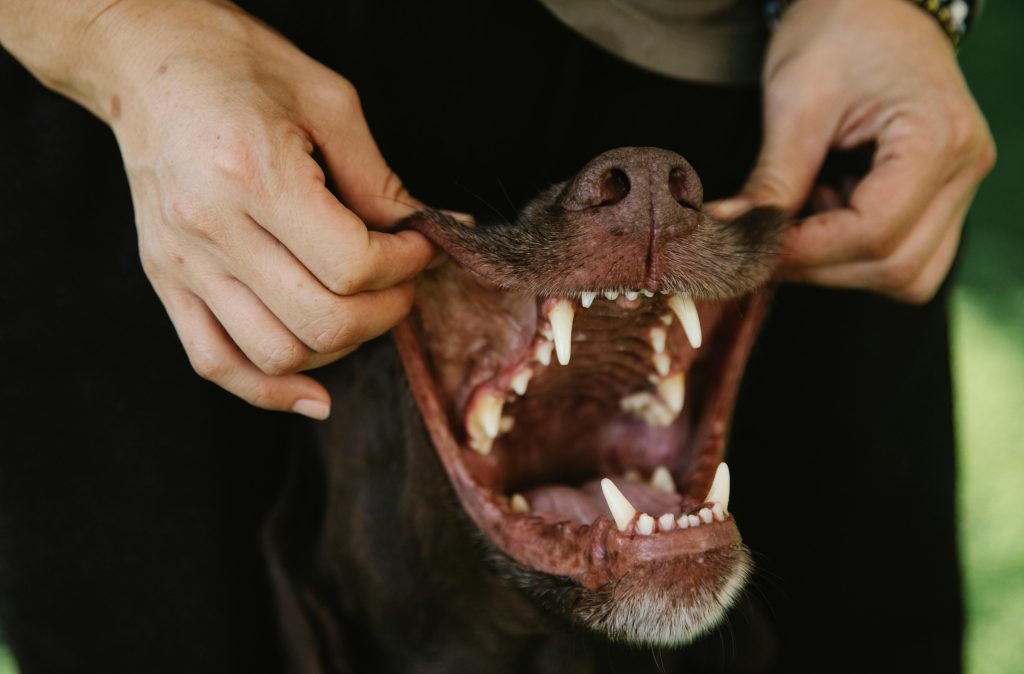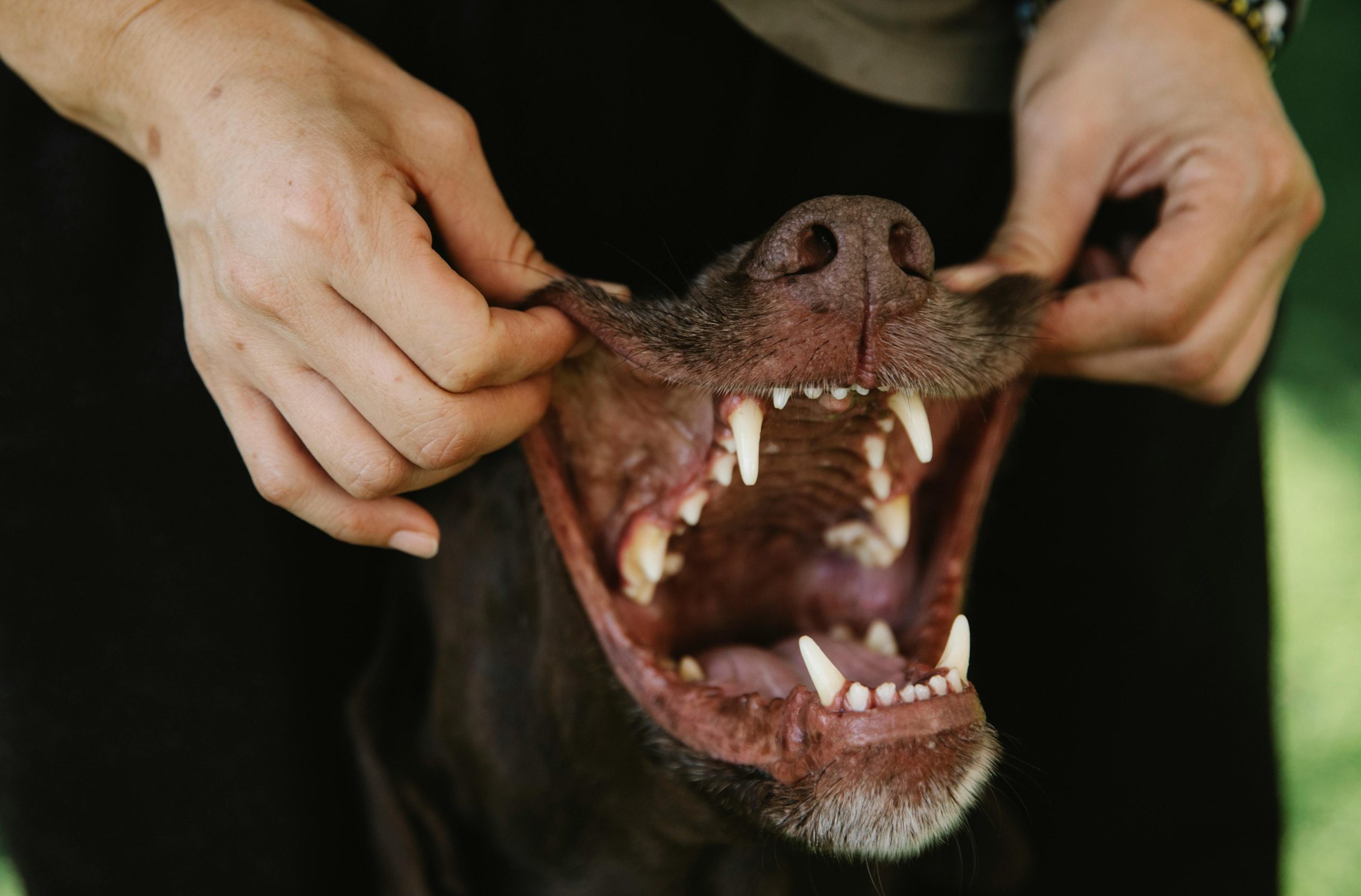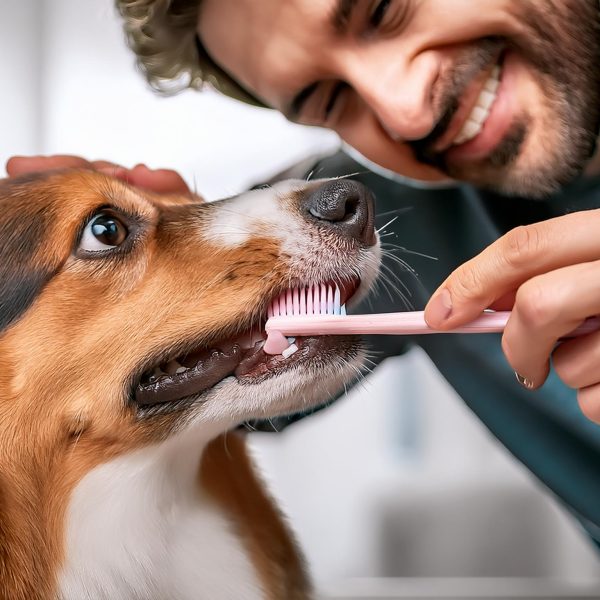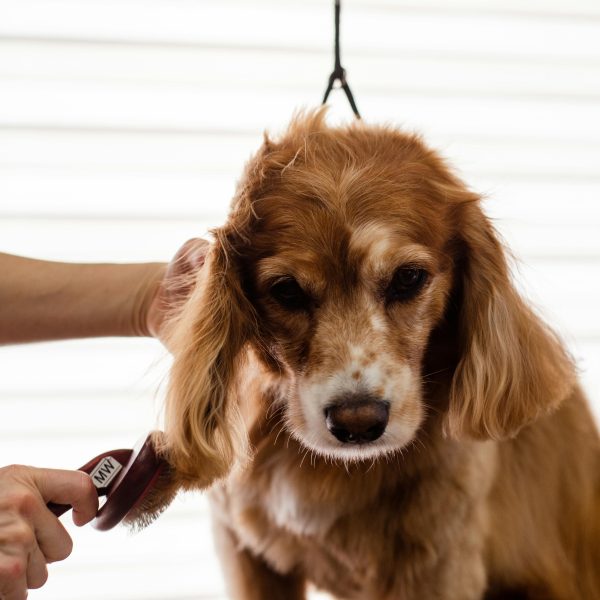Maintaining health is just as important for pets as it is for humans. Sadly, many pet owners tend to overlook this aspect of their friends’ well-being, which can result in dental issues causing pain and discomfort. Understanding these problems and taking steps can ensure that your pets lead a healthier and happier life.
Common Dental Problems in Pets
Gum Disease
Among the dental issues in pets is periodontal disease, also known as gum disease. It occurs due to the accumulation of plaque and tartar around the teeth, affecting the tissues supporting them. The disease typically starts with gingivitis (gum inflammation) and can progress to periodontitis, where the gums recede from the teeth leading to pockets.
Symptoms of gum disease include bad breath, swollen or red gums, trouble eating, and loose teeth. If left untreated, it can result in tooth loss and infections spreading to other body parts.
Tooth Breakage
Pets, especially dogs, are particularly susceptible to tooth fractures. Such incidents often happen when they chew on objects like bones or rocks or play with hard toys.
Tooth fractures can result in the exposure of the pulp, causing pain and a risk of infection. Common signs of a tooth fracture include loss of appetite, excessive drooling, and noticeable damage to the tooth. It is important to seek veterinary care for an evaluation and appropriate treatment, which may involve extracting the tooth or performing a root canal procedure.
Tooth Root Abscesses
Tooth root abscesses occur when the tooth’s root becomes infected, typically due to gum issues or a fractured tooth. This infection leads to the formation of a pus-filled pocket, resulting in pain and swelling.
Symptoms of a tooth root abscess include swelling in the area under the eye, discomfort while chewing, and reluctance to eat. Treatment usually consists of antibiotics and may require extraction of the tooth to prevent further complications.
Oral Tumors
Oral tumors can also impact pets. These tumors can be either benign or malignant and often manifest as growths or masses in the mouth. Early detection plays a crucial role in improving prognosis.
Signs indicating tumors include masses or lumps, bleeding from the mouth, difficulty eating, and bad breath. Veterinary assessment is necessary for diagnosis, often through biopsy procedures, and determining treatment options.
Malocclusion
Malocclusion refers to teeth misalignment that can affect both dogs and cats. It may be present since birth or develop following an injury. When teeth are not properly aligned, it can make eating challenging and even cause harm to the gums and other tissues in the mouth.
Signs of this issue include abnormal chewing habits, dropping food while eating, and noticeable misalignment of the teeth. Treatment options may involve orthodontic procedures or removing problematic teeth to prevent discomfort and injury.
Keeping Your Pet’s Teeth Healthy
Regular Dental Checkups
It’s crucial to schedule regular checkups with your vet to maintain your pet’s oral health. During these appointments, veterinarians can conduct cleanings, spot signs of dental problems, and provide necessary treatments.
Daily Toothbrushing
Brushing your pet’s teeth daily is an effective way to prevent issues. Using a toothbrush and toothpaste made specifically for pets, owners should brush their pet’s teeth regularly to remove plaque and prevent buildup. Starting this routine early can help pets get used to the process.
Dental Treats and Chews
Offering treats and chews that are designed to reduce plaque and tartar buildup can contribute to maintaining oral health for your pet. These products complement brushing efforts by helping keep your pet’s teeth clean.
Healthy Diet
A balanced diet plays a significant role in overall health, including dental health. Providing high-quality food that supports wellness can lower the chances of plaque accumulation in your pet’s mouth. Some pet foods are specially designed to promote dental health by reducing plaque and tartar buildup.
Avoiding Tough Chew Toys
It’s important not to give your pets chew toys or bones that could potentially cause tooth fractures. Instead, opt for options that are sturdy but not overly hard, ensuring they contribute to dental health without risking tooth damage.
Regular Oral Examinations
Pet owners should make it a habit to regularly check their pet’s mouths for any signs of problems. Watch out for swollen gums, bad breath, broken teeth, or any unusual bumps. Detecting issues early can result in more effective treatment.
Use of Water Additives
Water additives designed specifically for pets can aid in controlling the buildup of plaque and tartar. These additives are convenient to use and can be a helpful tool in maintaining your pet’s oral hygiene.
Professional Dental Cleaning
In addition to at-home care, professional dental cleanings performed under anesthesia are often required to thoroughly clean the teeth and address any underlying issues. These cleanings enable veterinarians to remove plaque and tartar from areas that may be challenging to reach with brushing.
Maintaining dental health is essential for the overall well-being and quality of life of pets. Knowing about issues like gum disease, tooth fractures, abscesses, oral tumors, and misalignment can help pet owners spot early signs and promptly seek veterinary help. Taking proactive actions such as regular dental exams, daily tooth brushing, providing dental treats and chews, maintaining a balanced diet, avoiding tough chew toys, doing routine at-home checks, using water additives, and scheduling professional cleanings can greatly reduce the chances of pets facing dental problems. By being diligent in caring for their companions’ oral health, pet owners can ensure that their pets have strong teeth and healthy gums for life.








